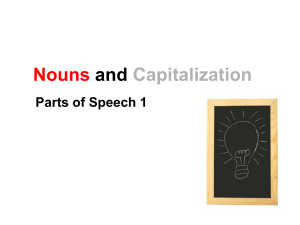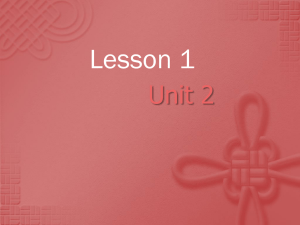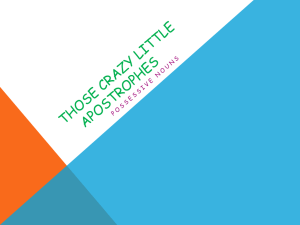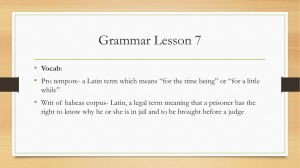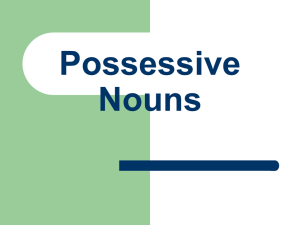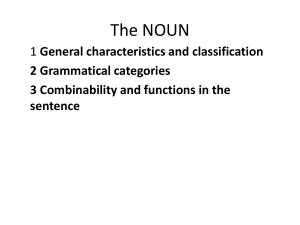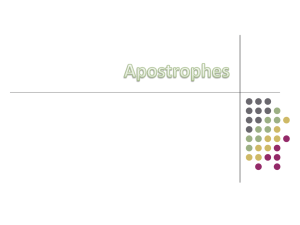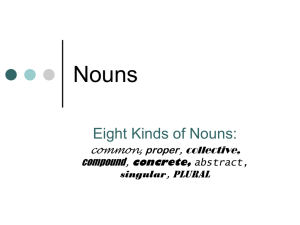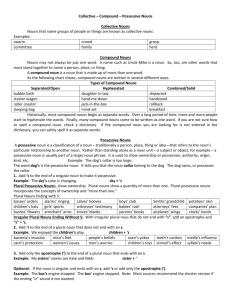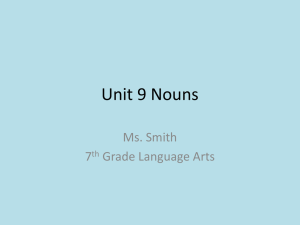Nouns - 8 - Florida Conference of Seventh
advertisement
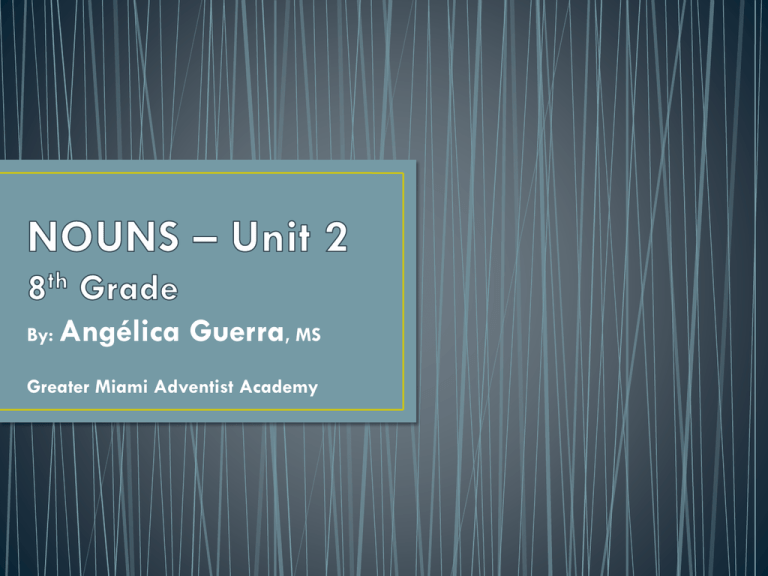
By: Angélica Guerra, MS Greater Miami Adventist Academy Kinds of Nouns – Lesson 1 CONCRETE & ABSTRACT COMMON & PROPER 1. CONCRETE: A noun that names something that can be experienced with the senses (can be seen, heard, tasted, or touched) 1. COMMON: Refers to ANY person, place, thing, or idea. 2. ABSTRACT: A noun that names an idea, a quality, or a feeling. 2. PROPER: Names a PARTICULAR person, Place, thing, or idea. Always capitalized. If it contains more than 1 word, capitalize all important words. Collective & Compound Nouns - 2 COLLECTIVE NOUNS • Refers to a GROUP of people, animals, or things. • a bunch of grapes • a flock of birds • the baseball team COMPOUND NOUNS • Two or more words used as a single noun. • Can be written as a single word: watermelon separate words: Miami Beach hyphenated words: father-in-law • A word or phrase that comes RIGHT AFTER the noun it explains or identifies. • They are set apart from the rest of the sentence by commas or parentheses. • They can be serious, scientific, funny, etc. • When the appositive is needed to identify the noun it follows, don’t use commas. • My cousin Stephanie always goes to the beach with me. SINGULAR & PLURAL NOUNS - 3 • A SINGULAR NOUN: •Names ONE person, place, thing, or idea • A PLURAL NOUN: •Names MORE THAN ONE person, place, thing, or idea Check and memorize rules on pages 90 & 91 for Regular Forms and Irregular Forms. • Possessive Noun: A noun that shows ownership (or possession) • Possessive forms replace the word OF or the verb HAVE: • Legs of the table = table’s legs • The dog has a bone. = the dog’s bone • For a singular noun, add an apostrophe and –s (‘s) -- Anna’s purse -- James’s car • For a plural nouns that ends in s, add an apostrophe ONLY (‘). -- The students’ books --animals’ babies • For a plural noun that does not end in s, add an apostrophe and –s (‘s). -- children’s toys --mice’s cheese • For a compound noun, add an apostrophe (‘) and –s (‘s) to the end of the compound. -- mother-in-law’s shoes --the rainbow’s colors • If 2 or more people own a single thing, place the apostrophe after the last person’s name. -- Ana and Peter’s dog • If each owns a thing separately, make each noun possessive. -- Ana’s and Peter’s dogs
